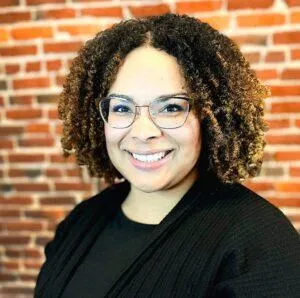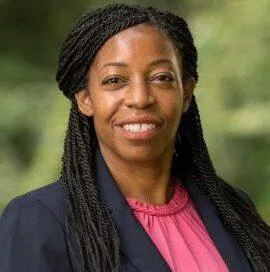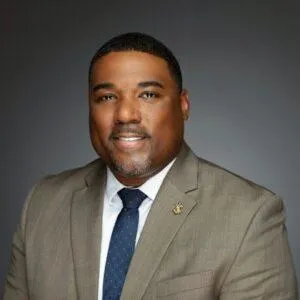Leadership Trainer is a 501(c)(3) nonprofit organization.
About Leadership Trainer
Leadership Trainer is a mission- and vision-driven 501(c)(3) nonprofit organization dedicated to eliminating boring lecture-style information-dump trainings.
Learn more about our Vision and Mission, read about the Foundational Beliefs that drive our work, meet our organizational leadership and Board of Directors, and access our previous Annual Reports, below.
Our Vision
We envision a world where every trainer consistently designs and facilitates high-impact training experiences that foster growth, drive innovation, and create lasting, positive change in our communities and organizations.
Our Mission
As a global non-profit, we provide engaging, transformational, and culturally relevant train-the-trainer strategies, resources, and services. Our proven approach to trainer preparation results in strengthened capacity-building, the direct and immediate application of learning to practice, and increased impact.
We are passionate about and explicitly dedicated to equipping the next generation of trainers and facilitators with the knowledge, skills, and dynamism to effectively develop the skills and capacities of others. This is our calling. This is our focus.
We believe that part of the reason why training and development opportunities are plentiful is because they fail to actually develop the skills and capacities of their participants. Collectively, all of us are thirsty for training and development experiences that actualize what they claim - to prepare us to be effective, powerful, and resonant leaders. We keep pursuing opportunities because nothing seems to quench this thirst. This failure is rarely due to the content. It is usually human error. Trainers and facilitators are generally ill-prepared to serve in this role. They either lack the educational background and theoretical knowledge base that should inform their work, or they lack the practical skills to know what good leadership looks like, or they lack the facilitation techniques to engage participants in a dynamic leadership learning experience. Or, worse, they lack all three....
Leadership Trainer is raising the bar on the level of training and preparation for those who are charged with and responsible for the training and development of others.
Our Beliefs
What We Believe About Training & Facilitation
Experiential Learning, Immersive Hands-on Learning Experiences, & Reflective Dialogue
Facilitating trainings is generally conducted as a conventional learning experience. That is, it is trainer-focused and utilizes a "banking" form of information-sharing where the trainer attempts to "deposit" knowledge into the minds of participants. In practice, they are presented as a boring information-dump with a deck as the key feature resulting in butts-in-seats for hours upon hours. This is not an ideal method of accessing the training message, internalizing information, or positioning participants to apply that learning to practice.
We believe that training and facilitation should be grounded in experiential learning that utilizes immersive, hands-on learning experiences and reflective dialogue. When trainings are conducted in this way, we (as dynamic and engaging trainers) are flexible and open to learning possibilities because participant skills development and knowledge acquisition is the central focus. When we ask, "Whose training is this?" The only appropriate answer is, "theirs". It is the participant's training...not ours. In practice, our trainings should include significant opportunities for participants to be "moving and doing" - to be physically engaged in learning experiences and have opportunities to process the learning through dialogue and relationship-building.
Formal Preparation of Trainers to Maximize Participant Learning and Engagement
"Trainings" are is famously offered by motivational speakers, business executives, sport coaches, and others who have little-to-no education or training to serve as the facilitators we deeply desire and need. Research indicates that most people who facilitate trainings rarely ever learn to do so. When this happens, they do what is comfortable and familiar - a boring lecture-style information-dump presentation.
We believe that training and facilitation should be offered by individuals who have the learned theoretical knowledge, cultivated practical skills, and mastered the techniques to ensure learning is accessible, internalized, and then applied to practice.
What We Believe About Leadership
Authentic Personhood & Intrinsic Purpose
Leadership is currently understood in antiquated ways. Leadership mindsets are rooted in notions that leadership is about power, position, and prestige. This too easily leads to a "personal reward" approach to leading - a what's in it for me? attitude. This quickly results in corrupt practices and behaviors.
We believe that leadership should be understood by one's authentic personhood (Who am I? What are my values? What is my vision?) and Intrinsic purpose (How can I engage in good, meaningful work? Where do my personal passions intersect with the pressing needs of my organization or community?) as the foundation of our leadership practice.
Relational Experiences Among Those Who Capitalize On Their Strengths & Authenticity
Leadership is frequently positioned toxically - solely about the leader. This "leader" is an extrovert who has come to "save the day" with their perfect way of leading.
We believe that leadership is a relational experience amongst a group of people (leaders and followers) - individuals who capitalize on their strengths and authenticity to act in ways with compassion and resonance that create the change that is needed in that particular time, place, and context.
Showing Compassion & Cultivating Resonance
Leadership is stereotypically assumed to be about exercising strength and dominance. Leaders "naturally" have all the answers and dictate to others how to proceed. These leaders create distance from followers and sit alone, behind closed doors.
We believe that leadership is about showing compassion and cultivating resonance. Effective leaders are masterful at intentionally asking questions; searching for answers, inspiring others; recognizing potential; and pursuing worthy, progressive change in partnership with others. Moreso, exceptional leaders tap into their learning disposition to engage in both inner-work that is matched with collaborative outer-action.
What We Believe About Social Justice and Racial Equity
Leadership Training and Development is a Matter of Justice & Equity
Across the globe, our culturally-conditioned leadership lens and practices are rooted in antiquated systems of oppression and inequity. Namely, leadership is commonly identified and understood by a limiting perspective of the power and authority one wields. Effective leaders cannot address issues of justice and equity if they do not seek to critically analyze and understand the systems of power and oppression that have and continue to inform our organizations and communities.
For this reason, leadership training and development is a matter of justice and equity. Intentional leadership training and development can shift this antiquated understanding of leadership-as-power to be welcoming of historically silenced voices of Black, Indigenous, and other People of Color (BIPOC). Leadership training and development provides the opportunity for us to transform our organizations and communities to be spaces that have a deeply ingrained culture of belonging.
Leadership Trainer believes that Black lives matter. We support tactical and tangible actions that aid in the process of dismantling 400+ years of oppression represented by white privilege and white supremacy. Namely, we condemn individual and institutional racism; acts of violence against Blacks, Indigenous, and other People of Color; and the systemic oppression that hinders equity—including, but not limited to disparities in education, employment, and opportunities for social advancement.
Leadership Trainer is committed to “doing the work” of understanding, illuminating, and challenging systemic oppression. This work can be a vehicle to identify blind spots, disable barriers, and provide access to the decision-making spaces where people have historically been exempt. We strive to utilize our platform to address inequities and injustices through our leadership training and development work. This includes:
• Prioritizing BIPOC representation on our Board.
• Ensuring diverse leadership scholars and practitioners’ voices are infused into our training programs and materials.
• Delivering free trainings and resources to nonprofit / NGO organizations that serve BIPOC communities and constituents.
• Allocating grant-funding to support the leadership training opportunities of nonprofit / NGO organizations (including higher education) that serve BIPOC communities and constituents.
• Offering scholarships to promote diverse representation in our programs.
• Hiring BIPOC Facilitators for every Certification Program.
• Pursuing Certification Program experiences for identity groups (e.g., Líderes Latinas).
• Seeking contract-work services from historically marginalized populations.
• Making this statement and action items known on our website, social media, and other promotional materials.
• Consistently reviewing our performance against this statement and these action-items.
Our Leadership
Founder & Executive Director
Jonathan Kroll, PhD.
Jonathan began his career as a university administrator, focusing on leadership development, community engagement, and reflection initiatives. He has co-founded two leadership training businesses in addition to Leadership Trainer. As a Master Trainer, Jonathan has facilitated hundreds of leadership workshops, retreats, trainings, conference presentations, and classes to thousands of participants across five continents over the last decade.
Formally, Jonathan served as the founding Program Director and an Assistant Teaching Professor for the Professional Leadership Studies program at the University of Rhode Island. He authored the award-winning Preparing Leadership Educators: A Comprehensive Guide to Theories, Practices, and Facilitation Skills, book.
Jonathan earned a PhD from Fielding Graduate University in Leadership with a focus in Group Mentoring. He coaches, consults, authors, teaches, and trains about leadership, mentoring, and training & facilitation.
Contact Jonathan at [email protected].

Jonathan Kroll, PhD.
Leadership Trainer Founder, Executive Director, and Master Trainer
Author of Preparing Leadership Educators
Board of Directors
Annual Reports
Download our most recent Annual Reports.
2024 Annual Report
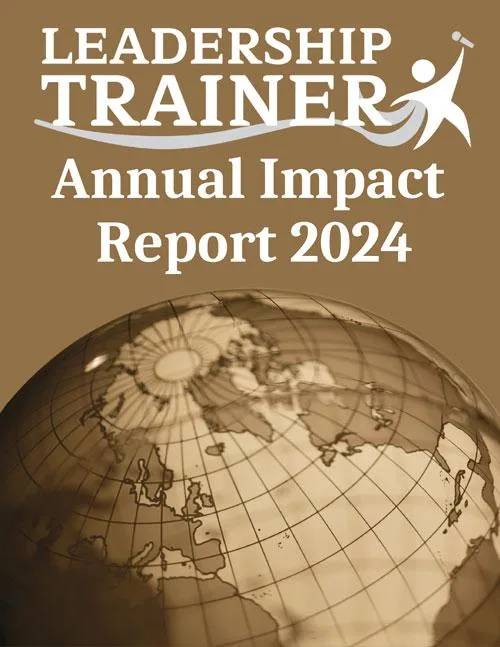
2023 Annual Report
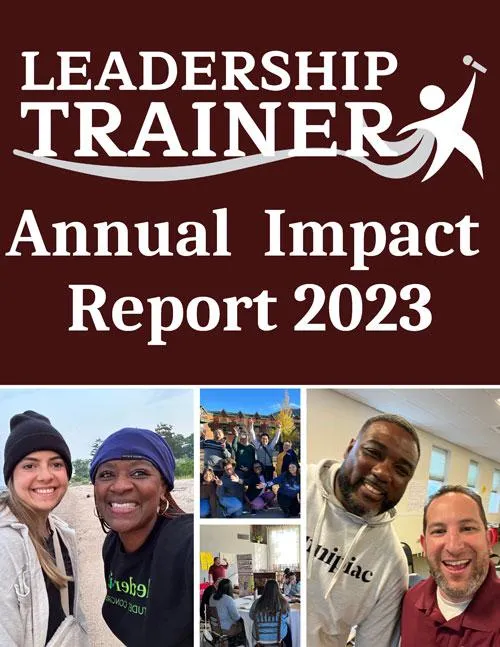
2022 Annual Report
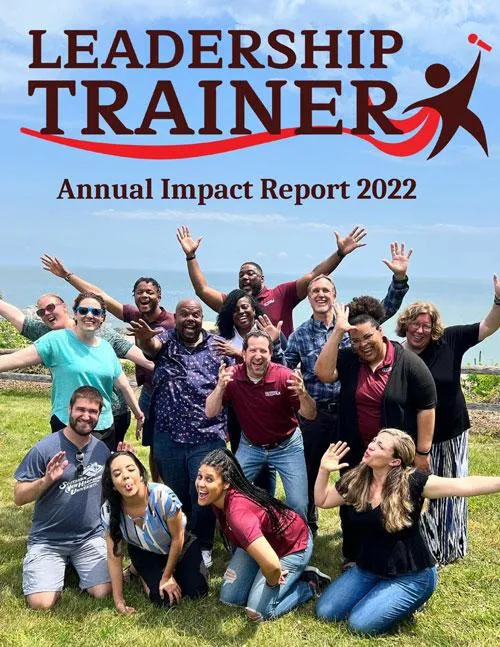
© 2026 Leadership Trainer. All rights reserved.
Leadership Trainer is a 501(c)(3) nonprofit organization.
